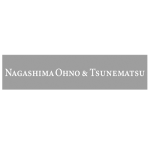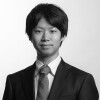As part of the disclosure system in Japan, companies that intend to raise funds through a public offering are required to file legal disclosure documents and a Securities Registration Statement, and are subject to ongoing disclosure requirements under the Financial Instruments and Exchange Act (FIEA) to avoid information asymmetry and protect investors.
Under the FIEA, if a company’s legal disclosure documents contain a false statement on material matters, investors who acquired securities through the offering (primary market) or a secondary market may seek compensation from the company or its directors/officers for damages caused by the false statement. Such lawsuits are generally referred to as ‘securities litigation’.
A typical situation where securities litigation may be filed involves accounting fraud, especially window-dressing accounting.
If it is revealed that a company committed a material accounting fraud, the company's stock price will dramatically decrease. Consequently, investors who purchased the shares of the company at a higher price before the announcement of the accounting fraud may seek to file a lawsuit seeking compensation for the damages caused by the decrease in the stock price due to the accounting fraud.
Requirements for securities litigation lawsuits
Although the requirements for securities litigation lawsuits differ depending on (i) whether the investors acquired securities in a primary market or a secondary market and (ii) to whom the investors file a lawsuit, the following describes the requirements for bringing securities litigation lawsuits when a company is liable to investors who acquired its shares in a secondary market, which is a relatively common type of securities litigation.
Claim requirements under the FIEA | Burden of proof | Comments |
(a) Existence of False Statements | Plaintiff | The existence of false statements on material matters or a lack of statements on material matters that should be stated or that are necessary to avoid misunderstandings (‘False Statements’) in legal disclosure documents, such as an Annual Securities Report filed under the FIEA, needs to be proved. Whether the False Statements fall under ‘material matters’ is sometimes an issue. |
(b) Acquisition or disposal of shares | Plaintiff | The fact that an investor acquired or disposed of the shares in a secondary market while the above legal disclosure documents were open to the public needs to be proved. As described below, when institutional investors outside Japan become plaintiffs, they should take care about how to prove this. |
(c) Damages caused by False Statements | Plaintiff | Investors who acquired shares within one year before the date of the announcement of the False Statements may claim presumed damages based on the standards stipulated under the FIEA. On the other hand, investors who acquired shares not less than one year before the announcement date may not utilise the presumption. In that case, the calculation process for damages is complicated and judicial precedents differ depending on the case. Therefore, external economic consultants could be assigned to provide support in respect of verifying the damages that investors suffered. |
(d) Investor unawareness of False Statements at the time of acquisition of shares | Defendant | In practice, this point is unlikely to become an issue. |
(e) Whether the company intentionally or negligently made False Statements | Defendant | If a company fails to prove that the False Statements were not made intentionally or negligently, this requirement shall be deemed to be fulfilled. Generally, it is difficult for a company to prove the above, especially in the case of accounting fraud. |
Institutional investors outside Japan
The issues in securities litigation are usually (c) and (e) above. In addition, based on the latest trends, the following points should be taken into account when institutional investors outside Japan become plaintiffs.
To file a lawsuit in Japan, a plaintiff must have the capacity to be a party under the Code of Civil Procedure. In this regard, the legal structures of foreign institutional investors vary and some are not incorporated. Such investors must meet the requirements prescribed in the Code of Civil Procedure and courts may question whether institutional investors have the capacity to sue. Therefore, it would be prudent for a foreign institutional investor to consult with legal counsel and confirm whether it is eligible to become a plaintiff before filing securities litigation.
In addition, investment schemes that institutional investors outside Japan utilise when purchasing the shares of Japanese companies can be complicated. Various parties – such as a global custodian, a sub-custodian, an investment advisory company, or a trustee company – could be involved in the purchase and most institutional investors do not acquire shares in their own names.
As a result, with respect to (b) above, institutional investors outside Japan often have difficulty proving that they purchased the company's shares. Therefore, it would again be advisable to obtain the opinions of legal counsel in advance.
Outlook
Although the number of securities litigation lawsuits has increased in recent years, they had not been common in Japan, and, as such, there remain many points at issue, including those described above, and that are yet to be made clear in practice. It will therefore be necessary to monitor the accumulation of precedents carefully.


